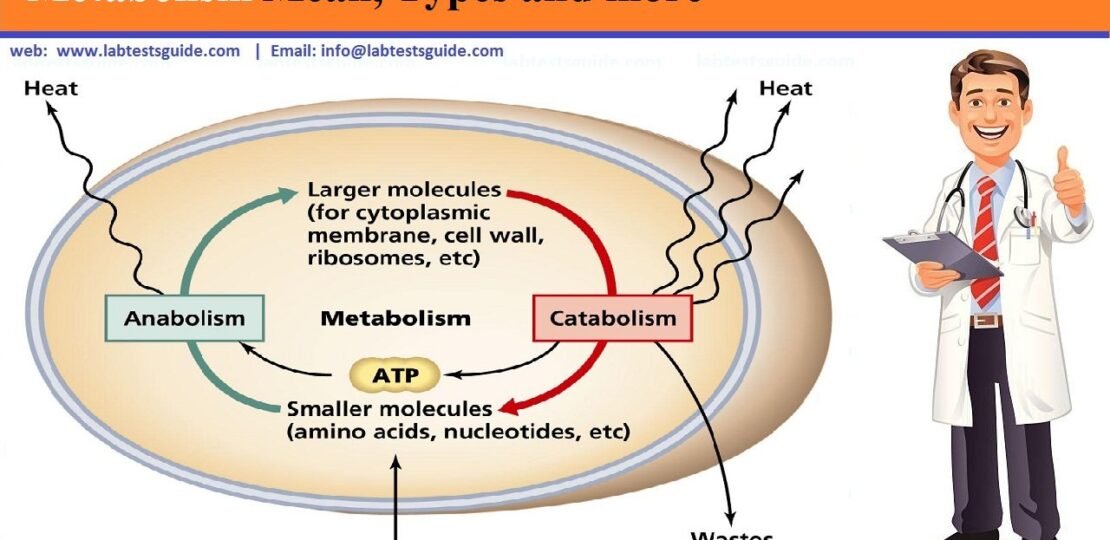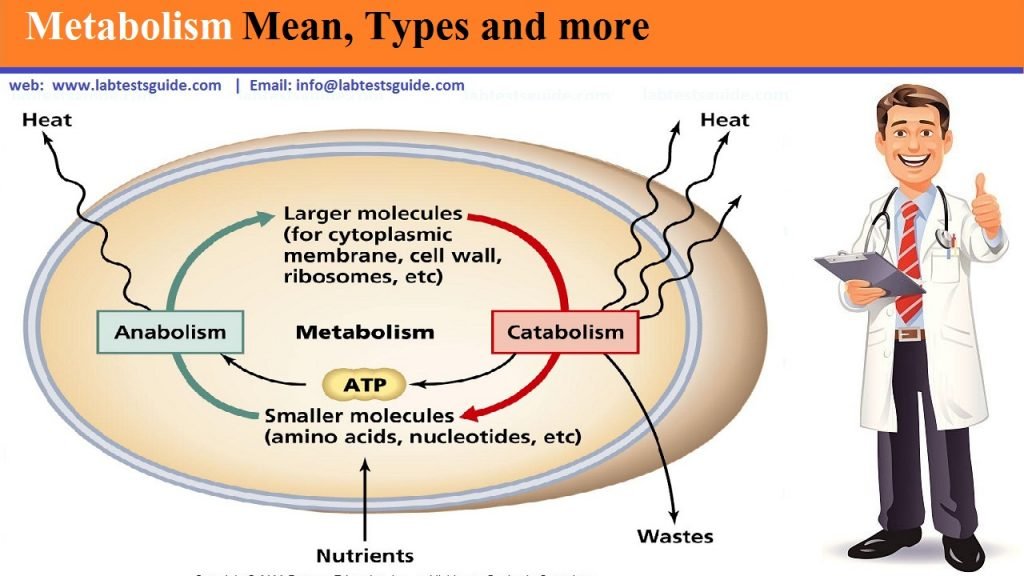
Metabolism is a term that is used to describe all chemical reactions involved in maintaining the living state of the cells and the organism. Metabolism can be conveniently divided into two categories:

- Catabolism – the breakdown of molecules to obtain energy
- Anabolism – the synthesis of all compounds needed by the cells
Metabolism is closely linked to nutrition and the availability of nutrients. Bioenergetics is a term which describes the biochemical or metabolic pathways by which the cell ultimately obtains energy. Energy formation is one of the vital components of metabolism.
Nutrition, metabolism and energy
Nutrition is the key to metabolism. The pathways of metabolism rely upon nutrients that they breakdown in order to produce energy. This energy in turn is required by the body to synthesize new proteins, nucleic acids (DNA, RNA) etc.
Carbohydrates in metabolism
Foods supply carbohydrates in three forms: starch, sugar, and cellulose (fiber). Starches and sugars form major and essential sources of energy for humans. Fibers contribute to bulk in diet.
Proteins in metabolism
Proteins are the main tissue builders in the body. They are part of every cell in the body. Proteins help in cell structure, functions, haemoglobin formation to carry oxygen, enzymes to carry out vital reactions and a myriad of other functions in the body. Proteins are also vital in supplying nitrogen for DNA and RNA genetic material and energy production.
The essential amino acids include:
- lysine
- tryptophan
- methionine
- leucine
- isoleucine
- phenylalanine
- valine
- threonine
Foods with the best quality protein are eggs, milk, soybeans, meats, vegetables, and grains.
Fat in metabolism
Fats are concentrated sources of energy. They produce twice as much energy as either carbohydrates or protein on a weight basis.
The functions of fats include:
- helping to form the cellular structure;
- forming a protective cushion and insulation around vital organs;
- helping absorb fat soluble vitamins,
- providing a reserve storage for energy
Minerals and vitamins in metabolism
The minerals in foods do not contribute directly to energy needs but are important as body regulators and play a role in metabolic pathways of the body. More than 50 elements are found in the human body. About 25 elements have been found to be essential, since a deficiency produces specific deficiency symptoms.
Important minerals include:
Vitamins are essential organic compounds that the human body cannot synthesize by itself and must therefore, be present in the diet. Vitamins particularly important in metabolism include:
- Vitamin A
- B2 (riboflavin)
- Niacin or nicotinic acid
- Pantothenic Acid etc.
Metabolic pathways
The chemical reactions of metabolism are organized into metabolic pathways. These allow the basic chemicals from nutrition to be transformed through a series of steps into another chemical, by a sequence of enzymes.
Related Articles:
RELATED POSTS
View all
